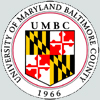| |||||||||||||||||||
Tips:  Range on the Protein: Protein ID Protein Position Domain Position:  No Conserved Features/Sites Found for IP_trans No Conserved Features/Sites Found for IP_trans
|
|---|
Weblogos are Copyright (c) 2002 Regents of the University of California
| DMDM_info@umbc.edu | 1000 Hilltop Circle, Baltimore, MD 21250 | Department of Biological Sciences | Phone: 410-455-2258 |




 Phosphatidylinositol transfer protein. Along with the structurally unrelated Sec14p family (found in pfam00650), this family can bind/exchange one molecule of phosphatidylinositol (PI) or phosphatidylcholine (PC) and thus aids their transfer between different membrane compartments. There are three sub-families - all share an N-terminal PITP-like domain, whose sequence is highly conserved. It is described as consisting of three regions. The N-terminal region is thought to bind the lipid and contains two helices and an eight-stranded, mostly antiparallel beta-sheet. An intervening loop region, which is thought to play a role in protein-protein interactions, separates this from the C-terminal region, which exhibits the greatest sequence variation and may be involved in membrane binding. PITP alpha has a 16-fold greater affinity for PI than PC. Together with PITP beta, it is expressed ubiquitously in all tissues.
Phosphatidylinositol transfer protein. Along with the structurally unrelated Sec14p family (found in pfam00650), this family can bind/exchange one molecule of phosphatidylinositol (PI) or phosphatidylcholine (PC) and thus aids their transfer between different membrane compartments. There are three sub-families - all share an N-terminal PITP-like domain, whose sequence is highly conserved. It is described as consisting of three regions. The N-terminal region is thought to bind the lipid and contains two helices and an eight-stranded, mostly antiparallel beta-sheet. An intervening loop region, which is thought to play a role in protein-protein interactions, separates this from the C-terminal region, which exhibits the greatest sequence variation and may be involved in membrane binding. PITP alpha has a 16-fold greater affinity for PI than PC. Together with PITP beta, it is expressed ubiquitously in all tissues. No pairwise interactions found for the domain IP_trans
No pairwise interactions found for the domain IP_trans









